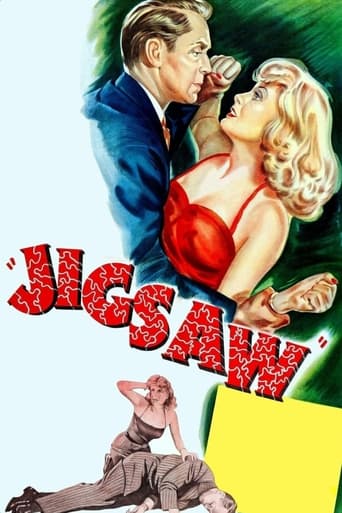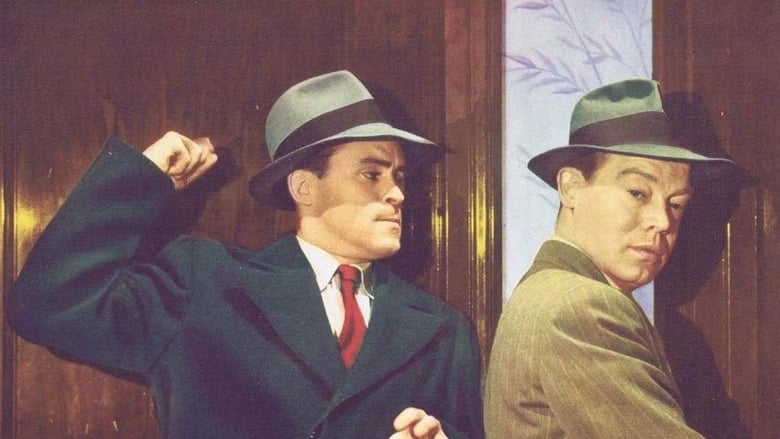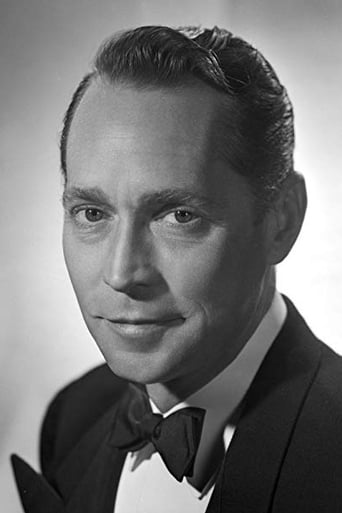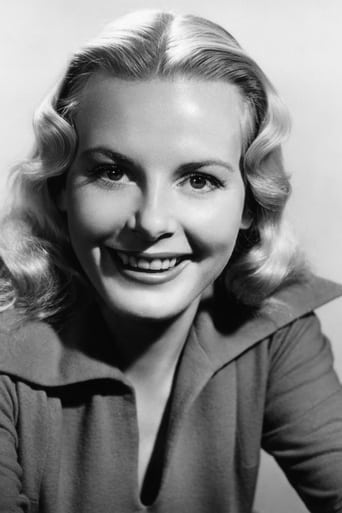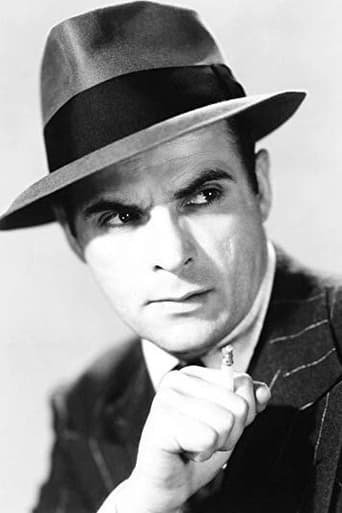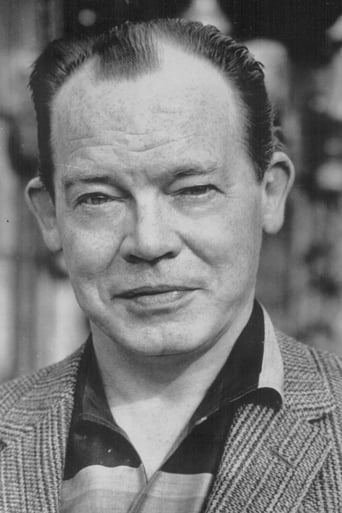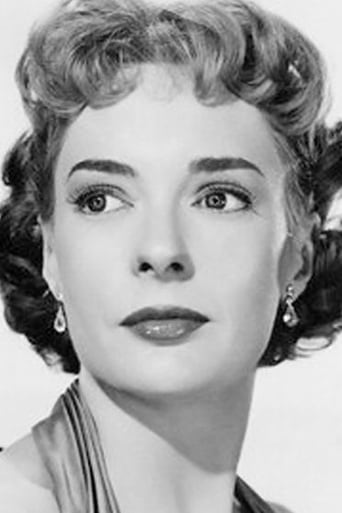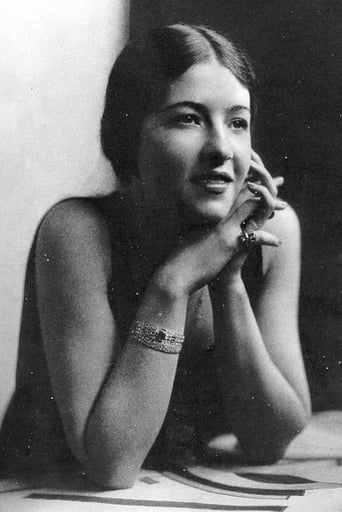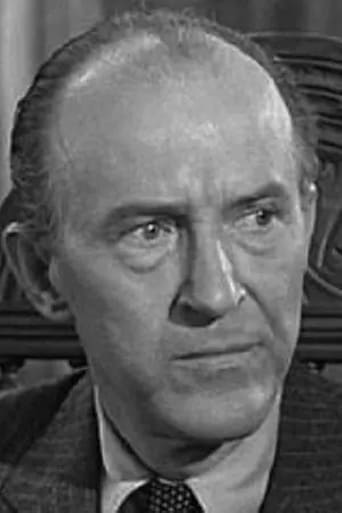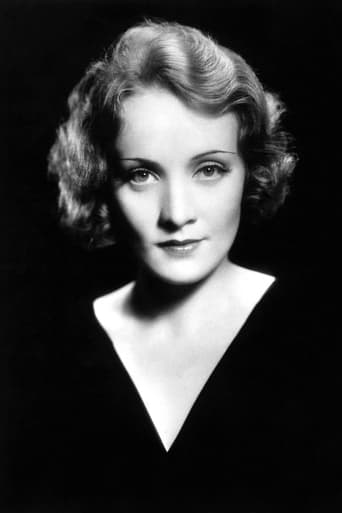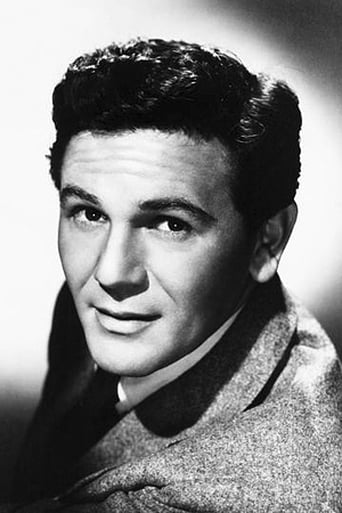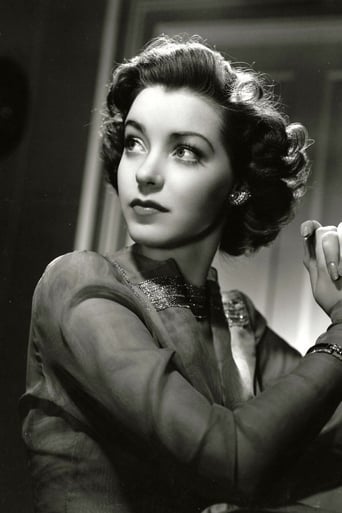New York Assistant District Attorney Howard Malloy is working hard on investigation about a series of murders related to an extremist group.


Similar titles
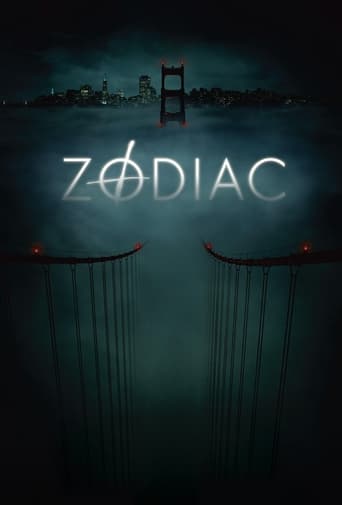
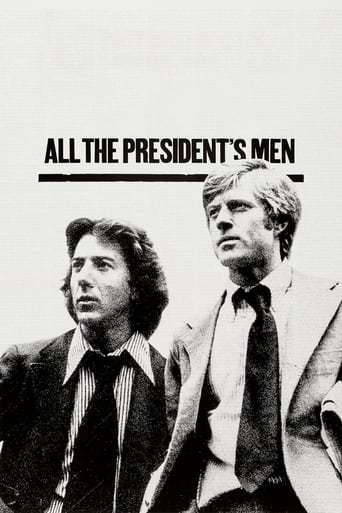
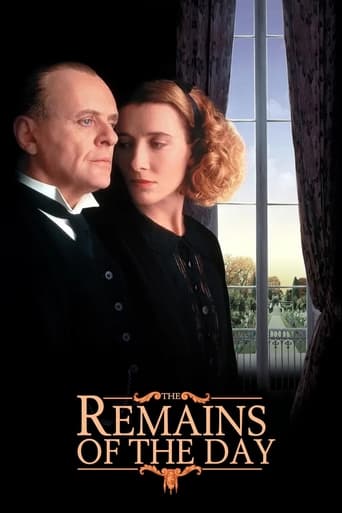
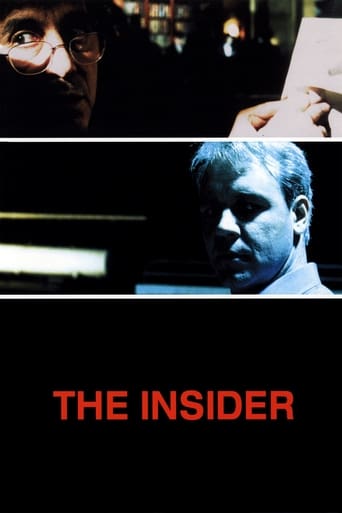
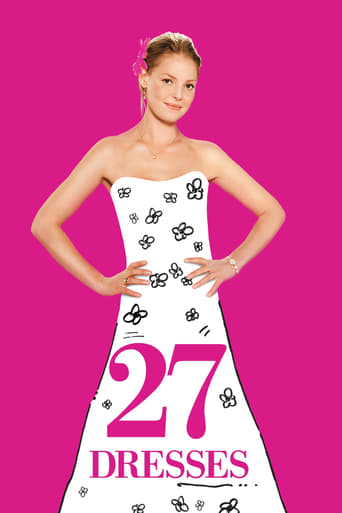
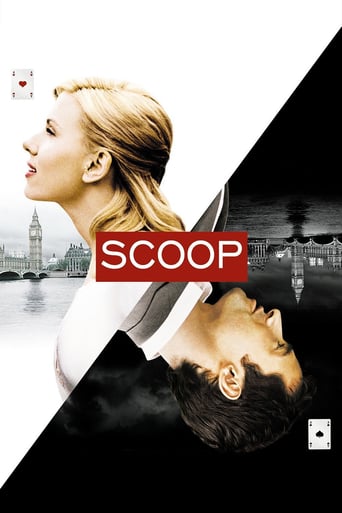
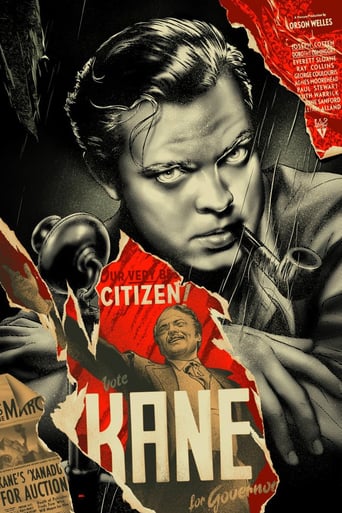
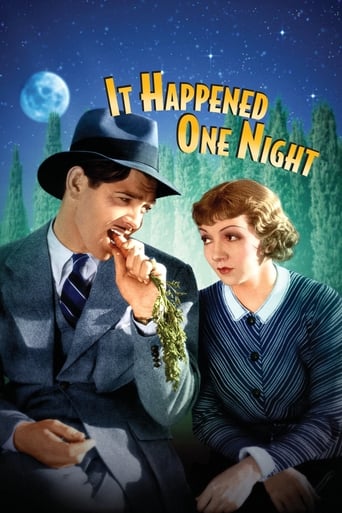
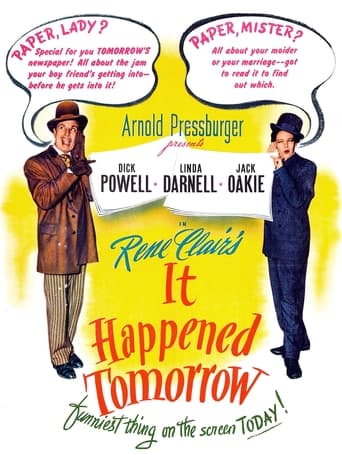
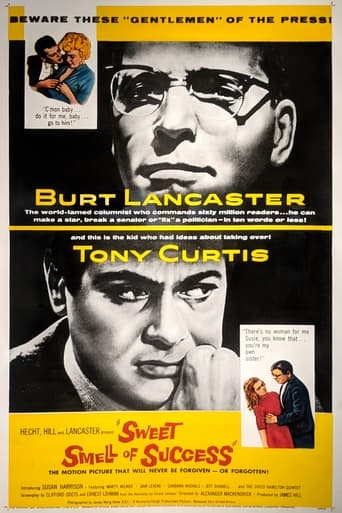
Reviews
An indie drama with Franchot Tone and Jean Wallace, and I would say that their acting was unexpected, not as in whimsical, but as in refined, inspired, refreshing and suiting the movie; she has an appealing dynamism, and is very gracious in a scene when she talks with the conspirators.Franchot Tone looks somewhat like J. Depp (but plays way subtler). After Barbara was killed, Malloy seems a bit heartless, a bit insensitive and indifferent. One of the politicians had defined him as a tough guy, and indeed he does a fight scene, with an intruder whose knuckles he takes and then shows to the providential and populist angel of politics.I think it looks like an indie movie. I enjoyed it. It's experimental movie-making not only because of the cameos, but also in its style, an intelligent and quirky one: dry, unadorned, effective and graceful.It also suggests a comparison with European '70s crime dramas.Anyway, the plot seems vague, the opposite of a '30s crime movie about sinister conspiracies, etc.; the style is ironic and well mastered. This aloofness, the distancing are deliberate, achieving a comic book atmosphere. Tone's performance is vivid, but all the characters, the prosecutor included, are made to seem cryptic. The indoors scenes have a smoldering appeal: the rooms, then the museum.The countless cameos are red herrings, and serve in fact to suggest mirrors, a play of mirrors.Even today, it's misinterpreted by many, and it deserves a reappraisal; it requires a taste for starkness, for unadorned movie-making (this, despite the misleading offering of cameos). And it makes a welcome treat for those curious to see the leading player in such a role.Its dismissal is due to the audiences' bad habits (of dismissing what they have been told to); one can question its aesthetics, but not without acknowledging that it certainly has one, as it was not an assemblage of cameos, but an experimental work.
A printer "commits suicide" though we know its murder, not long after a story appears in the paper about how he was printing material for a hate organization, which may only have been a cover for a corrupt money making scheme. The writer of the newspaper story continues to chase after his leads while his friend, an assistant DA, tries to figure out if it really was murder or suicide. When the reporter ends up dead ( another "suicide") all bets are off and the DA begins to pursue the death of his friend, with murder looking more likely when he gets a visit from a man looking to do him harm. This one blindsided me in that I thought it was going to be an average crime story that I could put on and drift off to sleep, unfortunately for me its an above average little thriller that kept me awake when I was trying to fall asleep. I was ready for sleepy time and instead I had to fight to stay awake to follow some of the twists and turns of the story. While its not the best film ever to wander down the pike it is a solidly good one that's worth the effort to see. An added bonus is the fact that the film appears to have been filmed in and around New York so the locations make it all feel even more real. Worth looking for.
"Even angels can get their wings clipped!" says New York Assistant District Attorney Howard Malloy (Franchot Tone) to good-time girl Barbara Whitfield (Jean Wallace) as he tries to convince her to tell the truth, and of the consequences if she doesn't. Says Barbara, looking him in the eye, "You got the scissors?" It doesn't take long for Howard to trick her into spilling the beans, or at least start to...but Barbara is now scared, really scared. "Oh, Howard," she cries, "hold me, help me..." And these are the good lines. If the price is right, and I'd say no more than $3.99 used is the right price, Jigsaw will give you an earnest, disorganized ethics lecture disguised as a crime story. It has two good points. First, you'll have Franchot Tone to watch, an actor I've always considered one of the best in Hollywood. Tone could make even a mundane and slightly ridiculous character seem interesting. He had class, charm, screen presence and top-drawer acting ability. Unfortunately, he had a private life that shredded his dignity. (He got in a fight with actor Tom Neal over Barbara Payton and wound up beaten into a coma with a smashed cheek bone. Payton married him when he recovered and then left him seven weeks later for Neal.) He also was one of those actors, like Gary Cooper, who simply didn't age well. But he was such a classy actor he could even bring some interest to weak tea like Jigsaw, as well as to a number of lesser but intriguing movies like Phantom Lady. Second, you can play the amusing Hollywood game of Spot the Star Cameo. In unbilled bits that last a second or two are such luminaries as Burgess Meredith, John Garfield, Marsha Hunt, Everett Sloane and, I'm told, Henry Fonda and Marlene Dietrich. I must have blinked when the last two were on and I'm not about to watch Jigsaw again just to verify them. Why would these stars do walk-ons in such a clunky, disjointed movie as this? Probably because they had no idea it would turn out so poorly. Primarily, I suppose, because Jigsaw is a Hollywood lecture on the need to fight extremism. Remember, this movie was made in 1949. The anti-Communist fear-mongers were crawling out from under America's beds to frighten any who didn't believe they way they were told to believe. The Hollywood studio bosses were easily and quickly intimidated; the blacklist which ruined the careers of many actors, screenwriters and directors was gathering steam; and people were being called on to defend before Congress who their friends were, how they voted and what organizations they may have supported or joined. Jigsaw delivers a lot of verbal shots, however heavy-handed, at the reactionary forces. The shots are mind-numbingly preachy. Organizations and people like the Crusaders, says one character to Malloy, "exploit the anti-this and anti-that...and any race or religion they can exploit to use as a scapegoat. Ignorance pays off, and the profits can climb into the millions." He's referring to all the cash that true believers spend on membership fees, annual contributions, badges and T-shirts. All this is true, but the righteousness of the lectures is so earnest it sends us yawning. The plot is about a shadowy group called the Crusaders, which has been organizing itself into a power center. Its poster shows a handsome Aryan lad against the waving American flag. Their slogan, "Join The Crusaders -- Fight for America!". The implication is clear...the Crusaders will be against anyone who doesn't look, sound or believe the way that Aryan poster boy does. When a columnist is killed while looking into the Crusaders, Howard Malloy finds himself appointed a special prosecutor. He also finds himself in a noxious mess that combines crime, nativism and the reactionary beliefs of some of the privileged few. In the crime category is Marc Lawrence as Angelo Agostini. Lawrence never quite made it out of the journeyman actor category, but he was always good as a crook, a Gestapo agent or a killer. He has a satisfying role in Jigsaw. In the privileged category is Winifred Lenihan as Mrs. Grace Hartley, a smart, saucy and aristocratic society matron, a mover and shaker, wealthy, gracious and...well, don't turn your back on her. Lawrence and Lenihan almost make up for the others.
Franchot Tone is an up-and-coming prosecutor hot on the trail of a shadowy organization called the Crusaders. The acting is pretty good, but the relentless patriotic claptrap makes for a boring diatribe, especially since there's never really much clarity about what the Crusaders are doing and how or why they have political power. And the weird voice-overs and other occasional directorial clumsiness make for difficult viewing.For those in doubt, this is not film noir. ***Spoiler*** The main character is not disaffected or an outsider in any way. He is never seduced by the shadowy "Crusader" organization that puts him in a position of power (for no apparent reason). He does gets seduced by the femme fatale, but it doesn't even cause him to lose his fiancée. We have a feeling things are going to go bad all along, but the hero isn't under constant pursuit. Those things all make it a suspenser, not a thriller and certainly not film noir.
